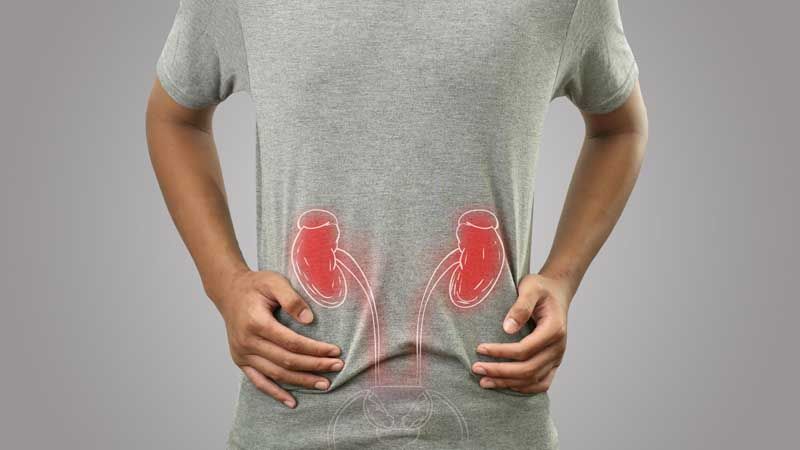What Does Your Metabolic Age Tell You About Your Health?
- 32 months ago
How old do you feel? If your body feels older than your actual age, it may be time to take action to improve your metabolic health and reduce your risk of future health problems.
Chronological age is based on the number of years you lived but your metabolic age tells you how well you’re aging metabolically (The energy your body needs to support its daily common functions) and can be used as a health marker that can help you identify lifestyle changes. It may help improve your health and lower your risk of future disease.
Researchers are constantly discovering new ways to measure and improve your metabolic health, which is the term used to describe how well your body turns food into energy throughout the day. One way to measure metabolic health is with a measurement called the metabolic age (also known as resting metabolic rate).
The great news? You can improve your metabolic age by making healthier food choices and exercising regularly! Read on to learn more about this concept, what it means, and how you can improve yours.
Table of content
- What is metabolic age?
- What does your metabolic age tell you about your health?
- How do you calculate BMR?
- BMI related to Metabolic age?
- Metabolic age v/s chronological age
- Improve your metabolic age
What Is Metabolic Age?
Your metabolic age is a calculation of how fast or slow your body is aging. It takes into account important factors that influence aging, including weight, waist circumference, blood pressure, and physical activity.
If you have an elderly-looking metabolic age, then your health might not be what it should be. By making some changes to your lifestyle—losing excess weight if you need to, getting more exercise, and reducing stress—you can improve your metabolic health and lower your risk for serious conditions like diabetes and heart disease.

What does your metabolic age tell you about your health?
Metabolic age is a fitness term rather than a medical term. This is a way to compare your basal metabolic rate (BMR) with others of your age. It can give you a broad idea of your metabolism, so you can take steps to supervise your weight and enhance your health.
Your basal metabolic rate (BMR) is a measure of how many calories you burn at rest. Your BMR can also be referred to as your metabolism. If you’re trying to lose weight, knowing your BMR and tracking it over time can help guide you towards increasing your activity level or making smart nutrition choices.
While a person’s actual biological age is calculated based on chronological data, his or her metabolic age refers to how well he or she processes energy.
How do you calculate BMR (Basal Metabolic Rate)?
It can be done using a formula:
Men: 66.5 + (13.75 x kg) + (5.003 x cm) – (6.775 x age)
Women: 655.1 + (9.563 x kg) + (1.850 x cm) – (4.676 x age)
How is BMI related to Metabolic age?
Your body mass index (BMI) is also one of many factors that determines your metabolic age. A BMI of 18.5 to 24.9 is considered healthy, while those with a BMI under 18.5 are considered underweight and those with a BMI over 25 are considered overweight or obese.
How is your metabolic age different from your chronological or biological age?
Everyone’s metabolism slows as they get older, but people who are overweight and/or have a family history of diabetes or cardiovascular disease may have a much slower rate. In other words, their metabolic age is much older than their chronological age
The biological (or basal) metabolic rate, or BMR, is a measurement of how many calories a person’s body burns when at rest. A more precise term is resting energy expenditure (REE), which is exactly what it sounds like: the amount of energy needed to fuel basic bodily functions while in a state of rest.
For men, REE averages between 13 and 15.5 calories per kilogram of body weight per day; for women, it’s 12 to 14. Women have lower REEs than men because they tend to carry more fat, whereas muscle tissue uses up far more energy than fat tissue.
In addition, women burn fewer calories during activity compared with men—even though on average they take fewer steps daily—because their bodies generally have less lean muscle mass than their male counterparts. Your doctor can easily estimate your metabolic age using these two numbers plus your height and weight. If your BMR and/or REE is much lower than expected based on those variables, then you may be metabolically impaired.
How you can improve your metabolic age?
Eat more protein:
- The easiest way to improve your metabolic health is by including more lean protein in your diet. In addition to boosting energy and helping build muscle, proteins also help stabilize blood sugar levels and reduce cravings that can cause weight gain.
- Vegetables are also good sources of protein, such as legumes and nuts, are often lower in calories than meat while still providing plenty of nutrients.
- If you’re trying to lose weight (or simply eat a little healthier), it’s smart to make extra vegetables part of every meal—and extra nuts or beans as snacks or sides when possible. It may not seem like much initially but over time these small shifts add up and make a big difference.
Check your dairy intake:
- You should also be aware of how much dairy you consume; eating too many high-fat foods can lead to trouble.
- If you’re looking for an area where you can cut back try cutting down on cheese.
Consume healthy snacks:
- Snacks are another good place to look for healthy swaps; trade chips for veggies and drink water instead of sugary drinks whenever possible.
- When all else fails—and you need something sweet—then choose fruit over candy bars or cookies!
Sleep well to improve metabolic age:
- Getting seven hours of restful sleep every night helps your body repair itself and improves feelings of well-being. However, some people don’t realize just how important getting adequate rest truly is.
- Not only do people who get less than six hours a night tend to pack on pounds more easily, but they also have higher rates of diabetes, heart disease, and depression compared with those who get eight hours or more.

Eat complex carbs:
- Complex carbohydrate foods provide essential nutrients like vitamins, minerals, and fiber that are significant for the overall well-being of an individual.
- Include beans, peas, vegetables, sweet potatoes, and whole grains in your diet.
FAQ:
What if my metabolic age is higher than my actual age?
If your metabolic age is more than your real age, it shows you would benefit from working out more and building a fit body which will consequently help to boost your basal metabolic rate.

Conclusion
When it comes to overall health, there’s nothing more important than knowing what to do when things aren’t quite right. Simply knowing whether you have a lower or higher-than-normal metabolism doesn’t mean you’re out of the woods just yet—but taking action to improve your metabolic health can be a solid first step toward improving other areas of your life as well.









